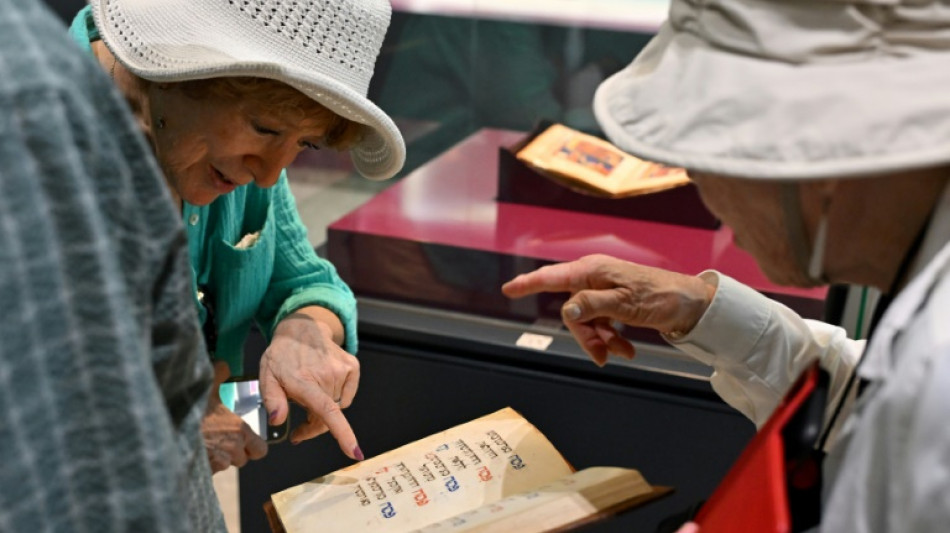Bosnia's national museum has defended a decision to donate funds from the display of a precious Jewish manuscript to the people of Gaza.
It said ticket sales to see the Sarajevo Haggadah, one of the most precious religious manuscripts of the Middle Ages, would be donated to "support the people of Palestine who suffer systematic, calculated and cold-blooded terror, directly by the state of Israel".
The move drew intense criticism earlier this month from Jewish organisations, with some abroad accusing the museum of antisemitism.
But museum director Mirsad Sijaric, 55, stood by the decision and said he had received numerous messages of support from Jewish people around the world.
"Did we choose one of the sides? Yes, we chose one of the sides," Sijaric told AFP.
- 'Politicisation' -
The museum's donation will also include sales from a book about the Haggadah.
Sijaric insisted the move was "absolutely not" directed against Jewish people, but was instead a message of opposition to what was happening in Gaza.
"Feigning neutrality is siding with evil. In my opinion, this is pure evil, and one must oppose it."
Several Jewish organisations criticised the museum's announcement, including the New York-based Anti-Defamation League, which labelled it a "politicisation" of a "symbol of heritage, survival, and coexistence".
Sitting in a glass cabinet in a specially designed room in the museum, the Haggadah has long been a treasured symbol of Sarajevo's diversity.
The majority-Muslim city is also home to just under a thousand Jewish people.
- Symbol of 'shared life' -
The Haggadah's illuminated and well-preserved parchment pages narrate the creation of the world and the exodus of the Hebrews from Egypt.
Dating back to 1350, the intricately illustrated manuscript is believed to have been written near Barcelona, and brought to Sarajevo by Jews who were expelled from Spain in 1492.
It survived Nazi occupation and was kept safe during intensive shelling in the Bosnian War of the 1990s.
Jakob Finci, president of the Bosnian Jewish community, described the move as "bizarre" and "a bit offensive".
"It tarnishes Sarajevo's reputation and that of the Sarajevo Haggadah, the book that for many years has borne witness to Sarajevo's multiethnic character and our shared life," Finci said.
"I've heard a lot of criticism (of the move)... I have not seen any praise."
Long kept in a safe and rarely displayed, the book has been more accessible since the special room opened in 2018 after a renovation paid for by France.
Its rich history and rarity continue to draw visitors and academics to the museum.
"I think it's a way to support the situation of the Palestinians in Gaza," said Italian Egyptologist Silvia Einaudi after viewing the manuscript.
"Gaza, why not?" said French visitor Paul Hellec. "It's a tough topic at the moment. But there are also many other places where people are suffering."
The war in Gaza was sparked by Hamas's October 2023 attack on Israel, which resulted in the deaths of 1,219 people, mostly civilians, according to an AFP tally based on official figures.
Out of 251 hostages seized by Hamas, 49 are still held in Gaza, including 27 the Israeli military says are dead.
Israel's retaliatory offensive has killed at least 62,819 Palestinians, most of them civilians, according to figures from the health ministry in Hamas-run Gaza that the United Nations considers reliable.
Media restrictions in Gaza and difficulties in accessing many areas mean AFP is unable to independently verify the tolls and details provided by the civil defence agency or the Israeli military.
F.Claes--LCdB
